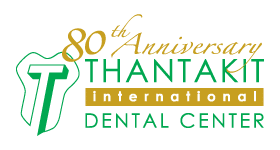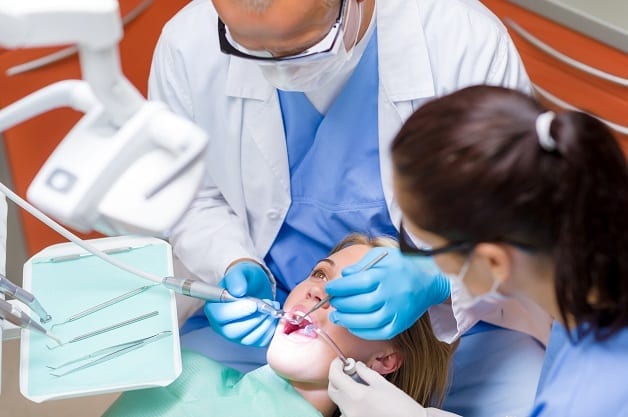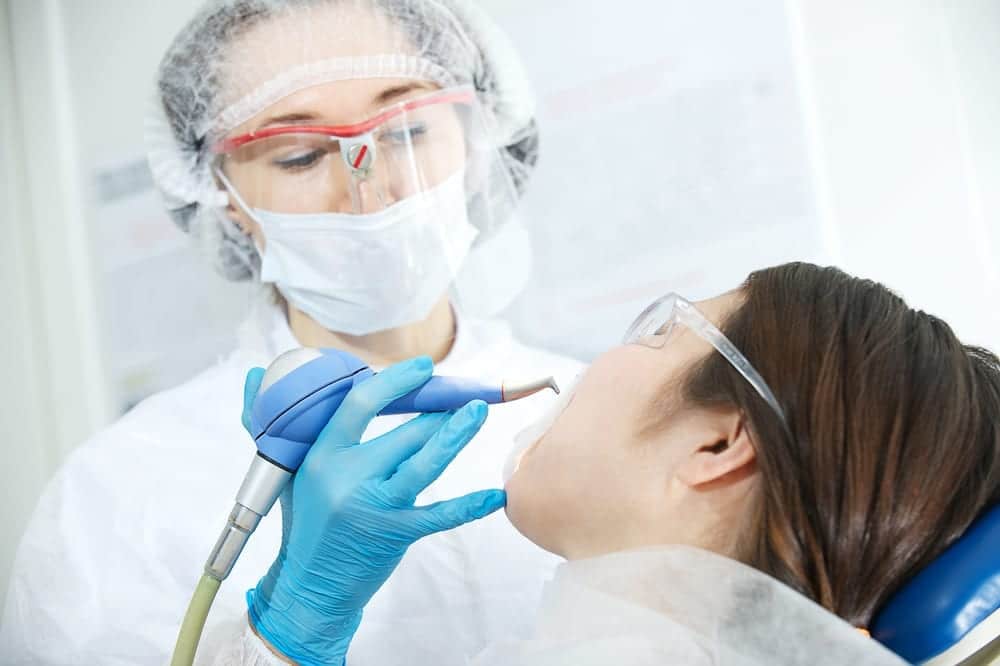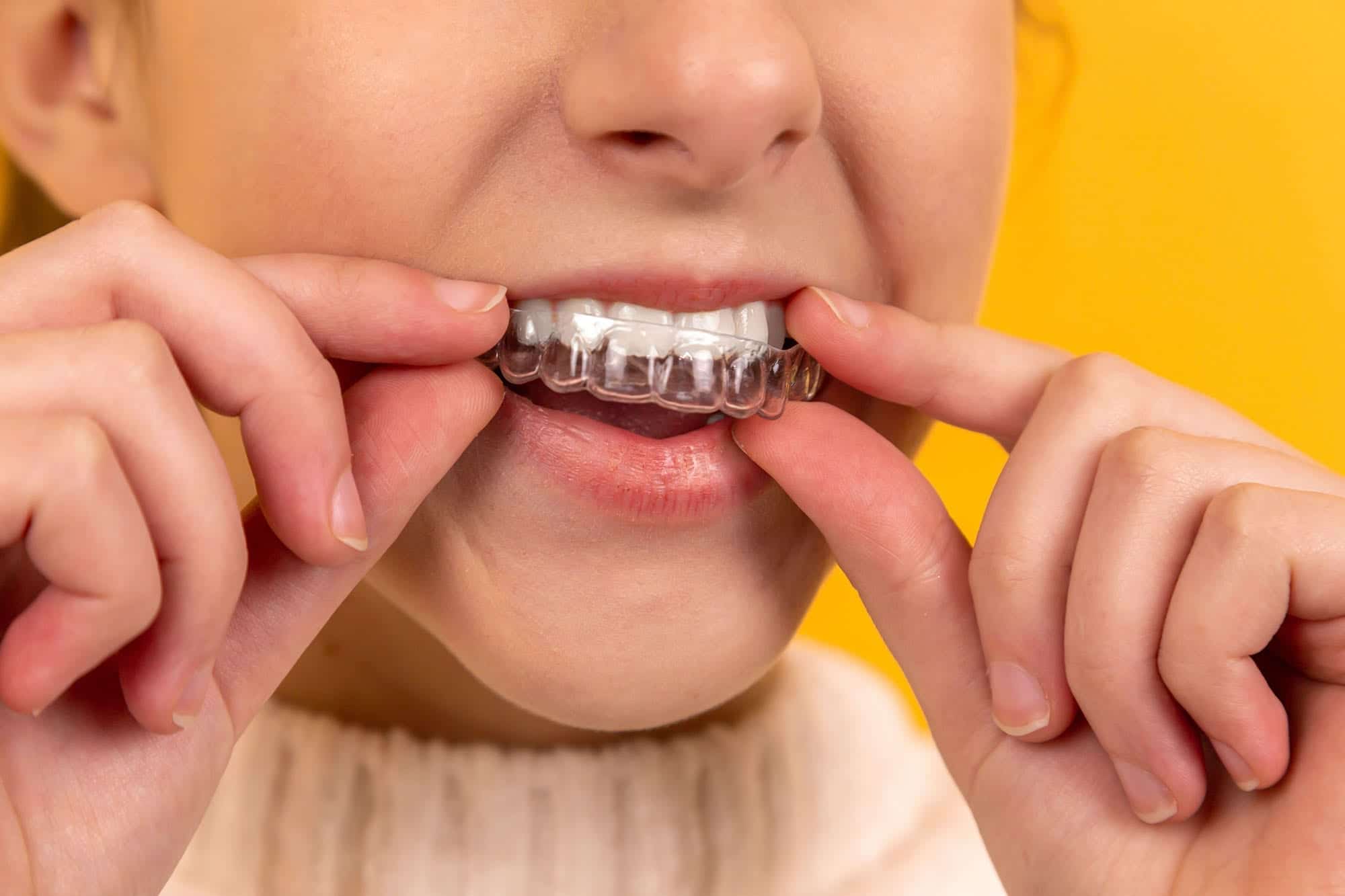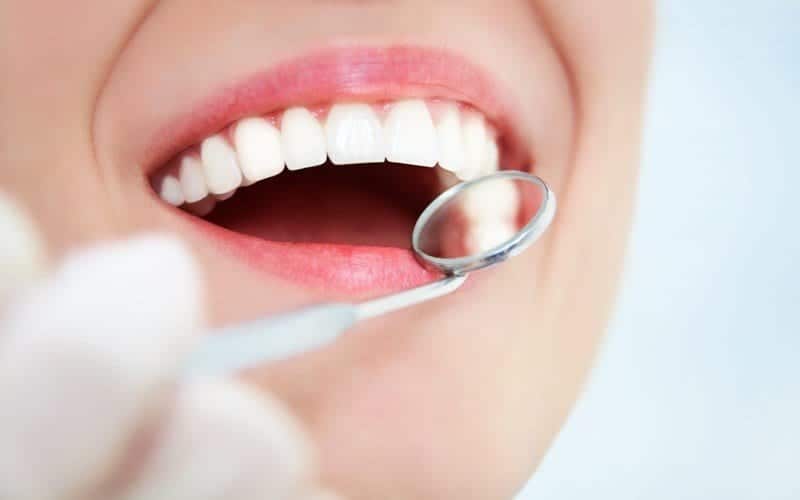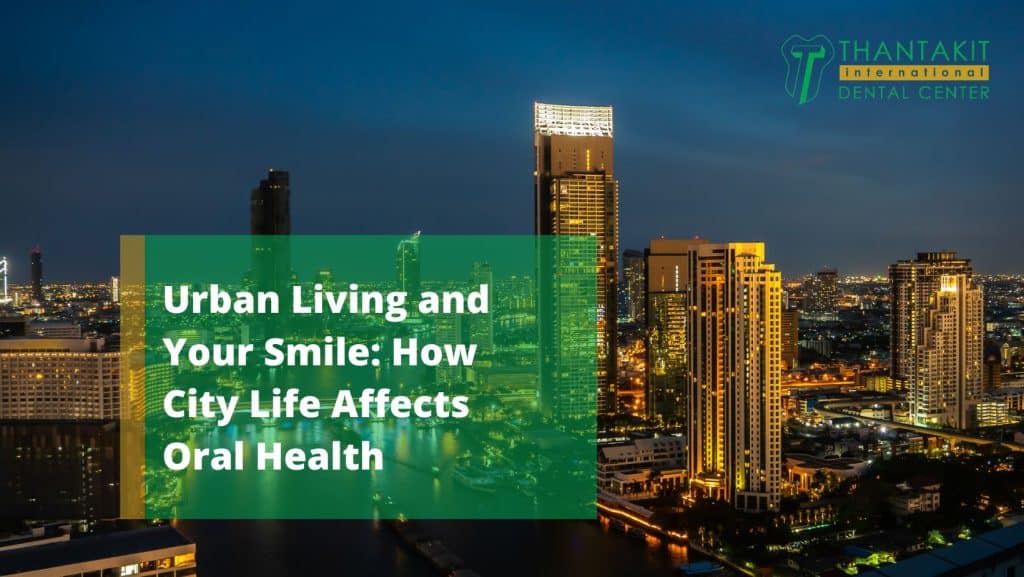City life moves fast. Really fast.
Between the morning coffee rush, the crowded commute, and those back-to-back meetings, taking care of your teeth probably isn’t top of mind. But here’s what dentists are seeing more and more: urban lifestyles are creating specific dental problems that weren’t as common twenty years ago.
Walk into any dental clinic in Bangkok, New York, or Singapore these days and you’ll hear similar stories. Young professionals with worn-down teeth from stress grinding. Expats dealing with unexpected cavities after moving to the city. Office workers whose gums bleed every time they brush. The patterns are clear, and they’re directly linked to how we live in modern cities.
Page Contents
The Hidden Cost of City Living on Your Teeth
Let’s be honest about what city life really looks like. In Bangkok, it’s grabbing coffee, waiting for the BTS Skytrain, and spending the day in air-conditioned offices. In New York, it’s the subway. In London, the Tube. Wherever you are, the pattern is the same: long days, fast food, late nights, and sometimes crashing into bed without brushing. We’ve all been there.
Now multiply that by weeks, months, years. Your teeth are taking hit after hit, day after day. The damage isn’t dramatic at first. You won’t see it happening. But dental professionals can spot city dwellers from a mile away just by looking at their teeth. The telltale signs? Enamel erosion along the gum line. Stress fractures on molars. Stubborn stains that regular cleaning won’t touch. Gum inflammation that keeps coming back.
One patient recently asked us, “Why are my teeth suddenly so sensitive? I’ve never had problems before.” She’d moved to Bangkok three years ago. Same oral hygiene routine. But add in the pollution, the stress of a new job, the convenience food culture, and her teeth were telling a different story.
The thing is teeth are remarkably resilient. They can handle a lot. But city living throws everything at them all at once, and that’s when problems start snowballing.
How City Air Actually Damages Your Teeth
Most people know air pollution is bad for their lungs. What don’t they know? It’s also messing with their mouth.
Bangkok residents are familiar with those hazy days when the PM2.5 levels spike. You can taste the air. Feel it coating your throat. Well, those same particles are settling on your teeth, mixing with saliva, creating an acidic film that slowly eats away at enamel.
Research from polluted cities worldwide shows the same trend. People in high-pollution areas have more gum disease. More cavities. More oral infections. The particles in polluted air contain heavy metals like lead and cadmium. These don’t just pass through your mouth; some actually accumulate in dental plaque. Over months and years, this toxic buildup weakens teeth from the outside while inflammation attacks from within.
But here’s what really gets people: air conditioning. We live in climate-controlled bubbles. Office, car, mall, home. All blasting cold, dry air. Your mouth dries out. Saliva production drops. And saliva? That’s your mouth’s natural defense system. Without enough of it, bacteria throw a party in there.
A sales executive came to us complaining about constant bad breath despite brushing three times a day. Turned out, his mouth was chronically dry from eight hours of air conditioning plus his motorcycle commute through polluted streets. Simple problem, but it was driving him crazy until we figured it out.
What Actually Works
Carrying water isn’t just trendy; it’s essential. Small sips throughout the day. Not gulping, just consistent hydration. Rinse your mouth after being outside, especially on high-pollution days.
Some patients swear by wearing masks during their commute. Yes, even post-COVID, it makes sense. An N95 mask filters out most particles before they hit your mouth. One patient told us her morning jaw tension disappeared after she started masking up during her motorcycle taxi rides.
Professional cleanings matter more for city dwellers. Every four months instead of six. Why? Because we’re removing hardened plaque that’s full of pollution particles. Regular brushing can’t get rid of this stuff once it calcifies.
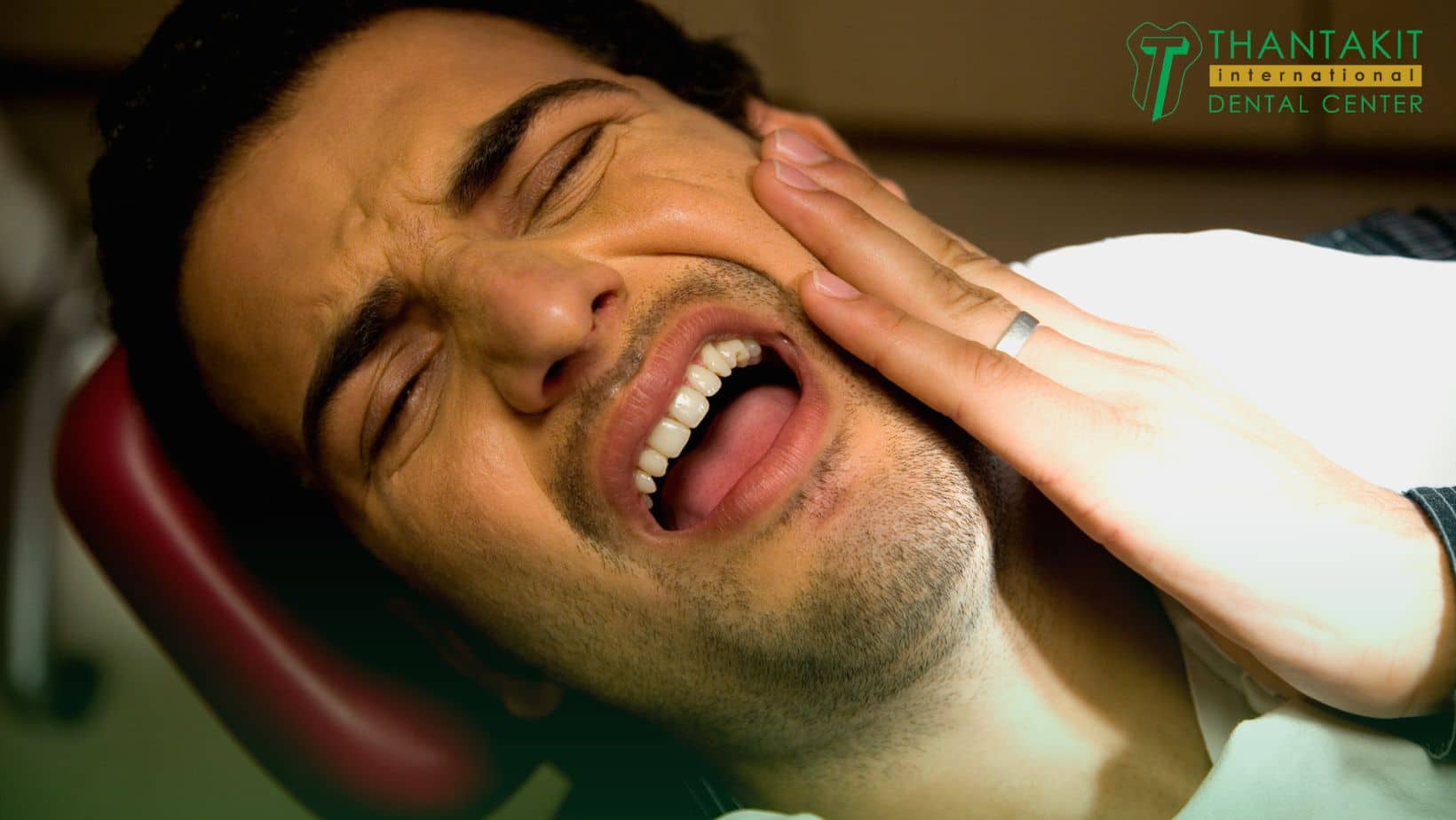
When Stress Shows Up in Your Smile
Stress and teeth grinding go hand in hand. Ask any dentist in a major city, and they’ll tell you: bruxism cases have exploded.
You might not even know you’re doing it. Most grinding happens at night. You wake up with a sore jaw, maybe a headache, and think you just slept wrong. Meanwhile, you’re literally wearing your teeth down, night after night. We see patients who’ve ground their teeth so flat, they look filed down. One advertising executive cracked three molars in six months. All during her agency’s busiest period.
Stress doesn’t just cause grinding though. When cortisol levels stay high (thank you, deadline culture), your whole mouth suffers. Blood flow to gums decreases. Your immune response weakens. Bacteria that normally wouldn’t cause problems suddenly do. That’s why people notice their gums bleed more during stressful projects or after tough weeks at work.
The Physical Signs We See
Worn tooth surfaces, obviously. But also:
-
Receding gums from the constant pressure
-
Tiny fracture lines in teeth (these show up on X-rays before you feel them)
-
Overdeveloped jaw muscles (yes, from all that clenching)
-
Tooth sensitivity that comes and goes with stress levels
One startup founder came in thinking he needed a root canal. Turns out, his tooth pain was entirely from grinding. A simple night guard solved what he thought was a major dental crisis.
Real Solutions That Fit City Life
Custom night guards are game changers. The good ones are thin, comfortable. Nothing like those bulky sports mouth guards. Most patients say they sleep better once they start wearing one. Their partners sleep better too (grinding is loud).
During the day? Set phone reminders to check your jaw tension. Are you clenching right now while reading this? Probably. It becomes so automatic, you don’t notice. Quick jaw stretches at your desk help. Open wide, move side to side, massage the muscles in front of your ears.
Some offices in Bangkok now have quiet rooms or meditation spaces. Use them. Even two minutes of deep breathing drops cortisol levels. Can’t meditate? Fine. Walk to get lunch instead of ordering in. Take the stairs. Move your body, relax your jaw.
The Diet Trap: Why City Food Culture Hurts Your Teeth
Let’s talk about what we really eat and drink in the city.
Morning: Sweetened coffee or tea. Maybe grabbed from the cart outside the BTS station. Mid-morning: Another coffee. Because the first one wasn’t enough. Lunch: Quick something. Probably includes a sugary drink. Afternoon: Energy slump = bubble tea, soda, or energy drink. Evening: Maybe beer, wine, cocktails. Definitely more snacking. Late night: Whatever’s convenient.
Every dentist knows this pattern. We see the results every day. The problem isn’t just sugar (though that’s bad enough). It’s the frequency. Your teeth get hit with acid and sugar all day long. No recovery time.
Here’s what actually happens: Each sip of something sweet or acidic triggers a 20-minute acid attack in your mouth. Bacteria feast on the sugar, producing acid that weakens enamel. Sip a latte over an hour? That’s 60 minutes of acid attack versus 20 if you drank it quickly.
Thai food makes things interesting too. Sweet and savory mixed together. That pad thai, those spring roll sauces, even savory dishes often have palm sugar added. Not criticizing the food (it’s delicious), just pointing out what it means for teeth.
The “Healthy” Options That Aren’t
Smoothie bowls. Fresh-pressed juices. Kombucha. Energy bars.
Patients are shocked when we explain these are basically sugar bombs for teeth. That green juice might have vitamins, but it’s also got as much sugar as soda. And it’s acidic. Double trouble.
One yoga instructor couldn’t understand why she kept getting cavities despite her “super healthy” diet. Turned out she was sipping fresh fruit juices all day between classes. Her teeth were essentially marinating in fruit acid and sugar for hours.
Alcohol adds another layer. Beyond the sugar and acid in drinks themselves, alcohol dries your mouth out. Remember what we said about saliva? Less saliva means more problems. Those late-night bar snacks after drinking? Your teeth’s worst nightmare.
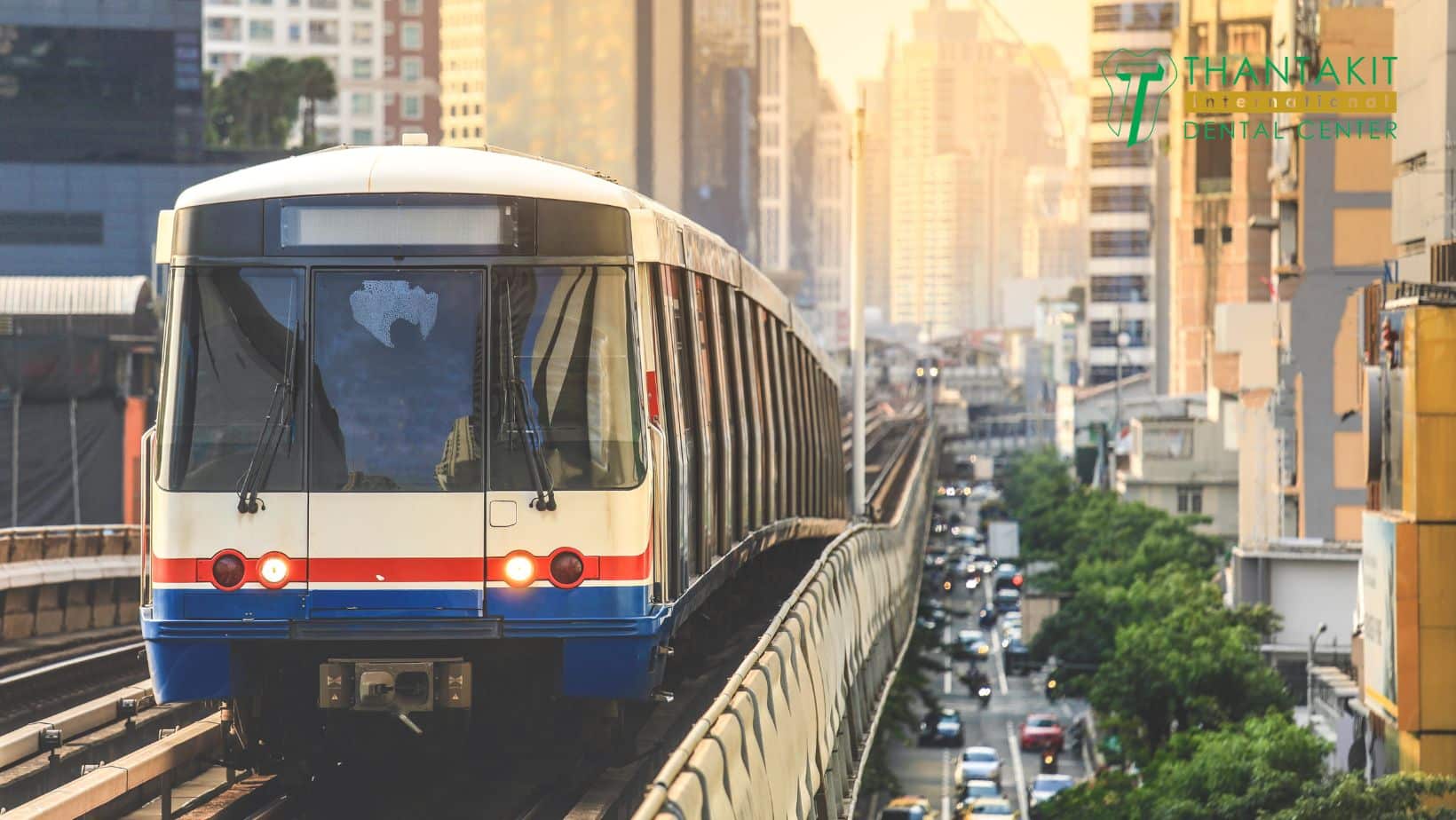
Making City Eating Work for Your Teeth
You don’t have to give up everything you love. Small changes, big difference.
Drink through straws when possible. Sounds simple, but it works. The liquid bypasses your teeth. Finish sweet drinks quickly rather than sipping. Treat them like dessert, not all-day companions.
Water between other drinks. Always. Coffee, water, beer, water. Creates a rinse cycle.
When eating out (which, let’s face it, is often in city life), be strategic. Skip the sugary appetizer drinks. Choose water or unsweetened tea. Save sweet stuff for immediately after the main meal, not hours later as a snack.
Pack tooth-friendly office snacks. Cheese cubes, plain nuts, vegetable sticks. Not as exciting as the vending machine offerings, but your teeth will thank you. One financial analyst keeps what she calls her “dental defense drawer”: almonds, string cheese, sugar-free gum, and green tea bags.
The Late-Night Problem Nobody Talks About
Cities don’t sleep, and neither do we. Bangkok especially comes alive at night. Street food until 3 AM, bars open late, 24-hour everything. Great for social life, terrible for teeth.
Here’s what happens: You’re tired, maybe a bit drunk, definitely not thinking about dental hygiene. You crash into bed without brushing. Food particles and sugar sit on your teeth all night. Saliva production drops during sleep, so there’s no natural cleaning happening. Bacteria multiply like crazy.
We see young professionals with rapid cavity development, and it almost always traces back to late-night habits. Skipping brushing even twice a week can undo months of good oral care.
One DJ came to us with severe gum disease at 28. Twenty-eight! His pattern: Work until 4 AM, crash immediately, wake up at noon, rush out. Brushing happened… sometimes. His gums were so inflamed, they bled just from talking.
The Exhaustion Factor
After a 12-hour workday plus commute, brushing feels impossible. Flossing? Forget it. We get it. We really do. But here’s the thing: It takes two minutes. That Netflix episode can wait two minutes.
Some practical solutions that actually work:
Keep toothbrushes everywhere. Office, gym bag, car. Brush before that last drink of the night, not after.
Can’t face the bathroom? Keep floss picks by your bed. Not ideal, but better than nothing.
Set an early evening alarm for “tooth time.” Before you’re exhausted. Before you start that series binge. Handle it when you still have energy.
One investment banker told us she brushes immediately after dinner, even if it’s 6 PM. If she snacks later, she rinses with water. But at least the major cleaning is done.
Why Smart People Skip Dental Visits (And Why It Backfires)
“I’ll book that cleaning after this project.” “Once things calm down at work.” “Next month for sure.”
Sound familiar?
Urban professionals are notorious for skipping dental visits. It’s not about money (usually) or access (clinics are everywhere in cities). It’s about time. Or rather, the perception that there’s no time.
Here’s what we see happen, over and over: Someone skips their six-month cleaning. Becomes a year. Then two. Then they show up with a dental emergency that requires multiple visits, costs a fortune, and disrupts their life way more than regular cleanings ever would have.
A management consultant learned this the hard way. Skipped checkups for three years during a demanding project period. Finally came in with unbearable pain. Needed four root canals, six crowns, and periodontal surgery. The time off work for treatment? Three weeks total. The cost? Let’s just say it exceeded her quarterly bonus.
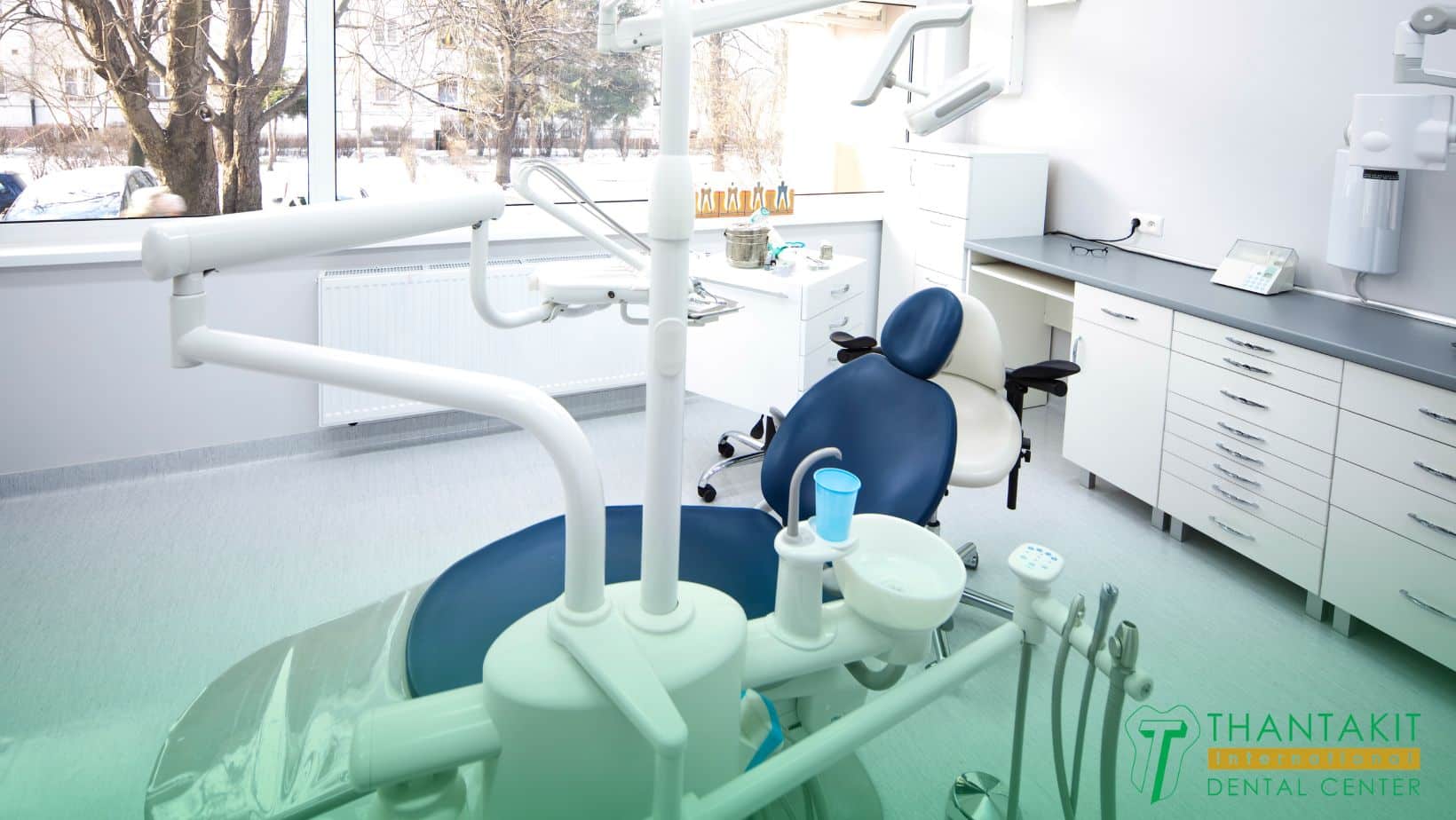
The False Economy of Skipping
Preventive care is cheap. Treatment is expensive. Really expensive.
-
Regular cleaning: One-hour, moderate cost
-
Filling a small cavity: 30 minutes, reasonable cost
-
Root canal and crown: Multiple visits, thousands of dollars
-
Implant to replace lost tooth: Months of treatment, price of a nice vacation
Yet people still gamble, hoping problems won’t develop. Spoiler alert: They always do. Especially with city lifestyle factors accelerating dental issues.
Making Dental Visits Fit Your Life
Modern dental practices understand urban schedules. Many clinics open at 7 AM or stay open until 9 PM. Saturday appointments are common. Some practices near business districts offer lunch-hour appointments.
Book your next year’s appointments all at once. January rolls around, schedule everything. Put them in your calendar as unmovable meetings. Would you skip a board meeting? A flight? Treat dental visits the same way.
Choose location wisely. Near your office, not home. On your commute route. Walking distance during lunch. Remove every barrier possible.
Some companies now bring dental services to offices. Mobile units for cleanings and checkups. If your company doesn’t offer this, suggest it to HR. The productivity saved from employees not taking half-days often justifies the cost.
Professional Care: Your Secret Weapon Against City Damage
Regular professional care isn’t just about cleaning. It’s about catching problems before they explode.
Dentists who work in major cities see patterns. We know what to look for. The slight wear pattern that signals stress grinding. The specific staining from pollution. The early gum inflammation from chronic dehydration. These things are subtle, but we spot them.
Professional cleanings remove what daily brushing can’t touch. Hardened plaque full of pollution particles. Tartar in spots your brush can’t reach. Stains from years of coffee and city living. Patients often say they forgot how clean their teeth could actually feel.
Technology That Makes a Difference
Digital X-rays catch problems invisible to the naked eye. Tiny cavities between teeth. Bone loss from gum disease. Stress fractures before they hurt. Early detection means minimal treatment.
Laser therapy for gum disease is perfect for busy urbanites. No cutting, no stitches, minimal downtime. Patients go back to work the same day.
Professional whitening can reverse years of city staining in one session. Modern systems are faster and more comfortable than ever.
Clear aligners straighten teeth without the metal mouth look. Important for professionals who present, network, or just care about appearance. Removable for important meetings or events.
Personalized Urban Wellness Plans
Good dental practices don’t just treat problems; they prevent them. Your plan might include:
-
Prescription toothpaste for high cavity risk
-
Custom night guard for stress grinding
-
Specific dietary modifications for your lifestyle
-
Extra fluoride treatments if you’re a heavy coffee drinker
-
More frequent cleanings if you’re in high pollution areas
These plans evolve. Changed jobs? New stress patterns need addressing. Started marathon training? Sports drink consumption needs monitoring. Got married? Coordinate insurance benefits.

Daily Hacks That Actually Work in City Life
Success comes down to preparation and realistic habits.
Your Urban Dental Survival Kit
Keep supplies everywhere:
-
Desk drawer: Toothbrush, paste, floss, sugar-free gum
-
Gym bag: Travel-sized everything
-
Car/motorcycle: Emergency kit for unexpected overnights
-
Work bag: Floss picks for discrete post-meal cleaning
Hydration strategy matters. Not just water quantity but timing. Sip consistently rather than gulping. After coffee, after meals, after being outside. One tech worker sets hourly phone alerts labeled “drink water, save teeth.”
Timing Is Everything
Consolidate eating into actual meals. Sounds obvious, but most city people graze all day. Three meals, one snack. That’s it. Your teeth get recovery time between acid attacks.
Morning routine: Brush first, then coffee. Seems backward, but it removes overnight bacteria before adding acid and sugar. Finish coffee within 30 minutes. Rinse with water after.
Evening cutoff: Pick a time when the kitchen “closes.” After that, only water. Teeth need those overnight hours to remineralize.
Smart Substitutions
Small swaps, big impact:
-
Xylitol gum instead of regular (actually fights cavities)
-
Sparkling water instead of soda
-
Green tea instead of that third coffee
-
Cheese instead of sweet snacks (neutralizes acid)
When ordering drinks: “Less sweet” or “half sweet” becomes your default. Most places accommodate this easily. Bangkok’s bubble tea shops are used to this request.
Tech Tools That Help
Electric toothbrushes with timers ensure you brush long enough. Some connect to apps showing missed spots. Worth the investment.
Water flossers make flossing easier, especially with dental work or braces. One minute, done.
Meditation apps for stress reduction. Less stress equals less grinding. Even five minutes daily helps. Some have specific TMJ and jaw relaxation programs.
Taking Control of Your Urban Smile
Here’s the truth: City living isn’t going away. If anything, it’s intensifying. More people moving to cities. Longer work hours. More stress. More convenience culture.
But you’re not helpless. Far from it.
Every patient we see who maintains great oral health despite city chaos has figured out their system. It’s not about perfection. It’s about consistency with the basics and smart adaptations for urban reality.
That executive who brushes at the office after lunch? Smart. The teacher who switched from soda to sparkling water? Brilliant. The couple who does “Sunday dental prep” with the week’s healthy snacks? They get it.
Your teeth are remarkably resilient when given the chance. They can remineralize. Gums can heal. Even worn enamel can be strengthened. But they need your help to combat what city life throws at them.
Think about it this way: You probably spend money on gym memberships, healthy food, skincare, maybe even meditation apps. Your oral health deserves the same investment. Not just money, but attention and priority.
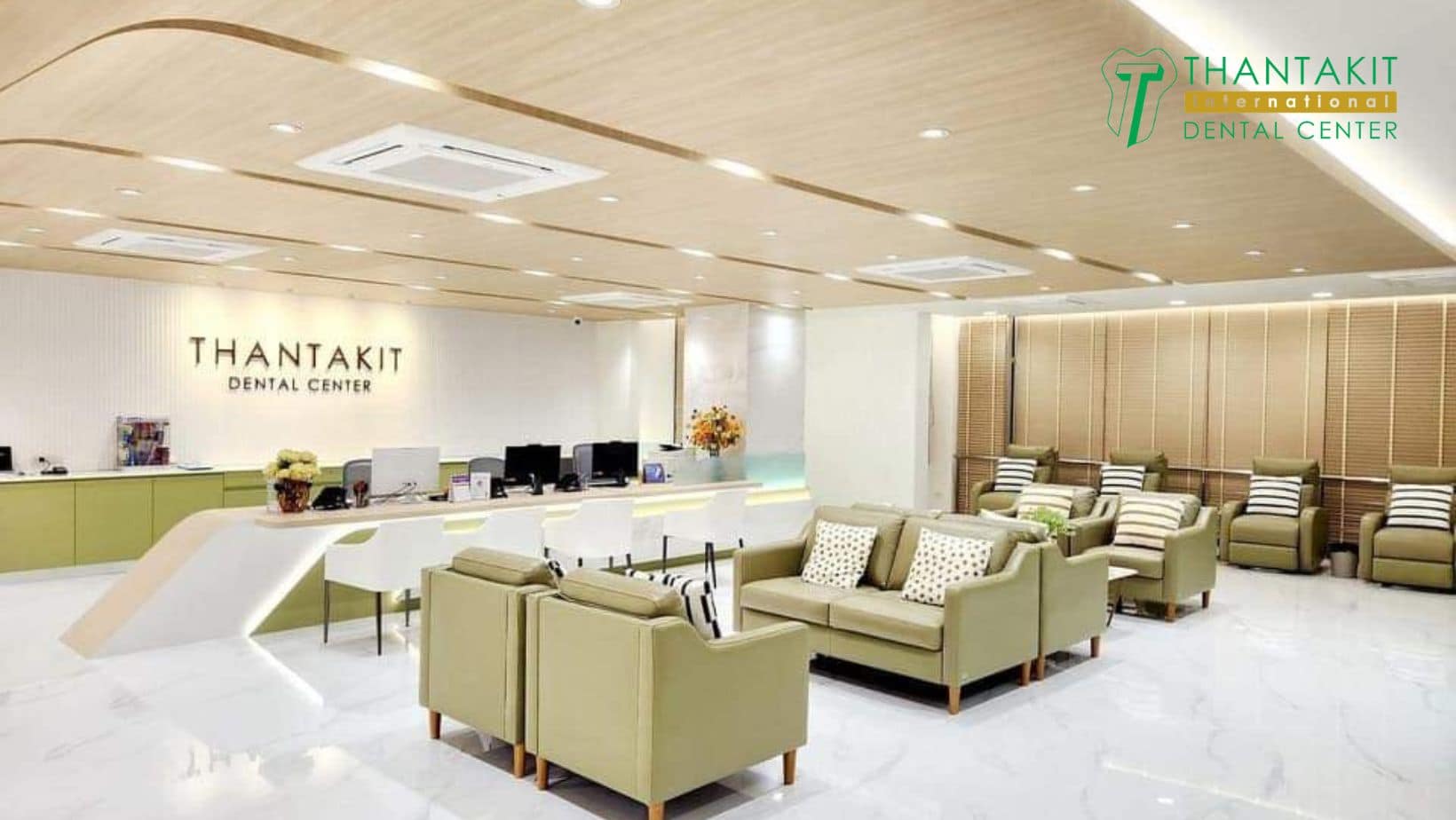
The Bottom Line
Dental problems from city living aren’t inevitable. They’re preventable with the right approach.
At Thantakit International Dental Center, we’ve been helping urban patients for decades. Expats adjusting to Bangkok life. Locals dealing with increasing pollution. Digital nomads trying to maintain health while constantly traveling. We’ve seen it all, and we know what works.
We’re not here to lecture about perfect habits nobody can maintain. We’re here to find realistic solutions that fit your actual life. Maybe that’s scheduling cleanings around your travel schedule. Or teaching you quick stress-relief techniques for jaw tension. Or finding the right night guard that you’ll actually wear.
Our international team understands the unique challenges of city living because we live them too. We breathe the same Bangkok air, navigate the same traffic, face the same time pressures. We get it.
Whether you’re dealing with sensitivity from years of coffee, stress fractures from grinding, or just want to prevent problems before they start, we can help. Our flexible scheduling includes early mornings, evenings, and weekends. Because we know that 2 PM on a Tuesday doesn’t work for everyone.
Don’t wait for pain to force you into the dentist’s chair. Don’t let city living steal your smile. Take control now, while small adjustments can make big differences.
Book your urban smile consultation at Thantakit International Dental Center. Let’s work together to keep your teeth as strong as your city ambitions. Because in a city that never stops challenging you, the last thing you need is dental problems slowing you down.
Your smile is part of your success story. Let’s make sure it stays that way.
